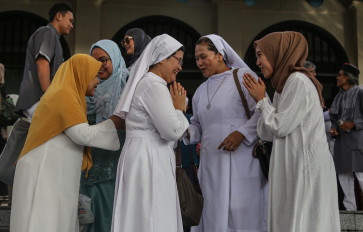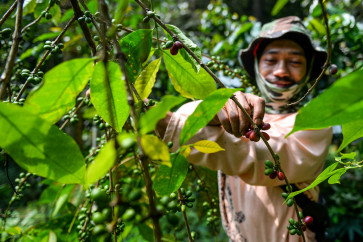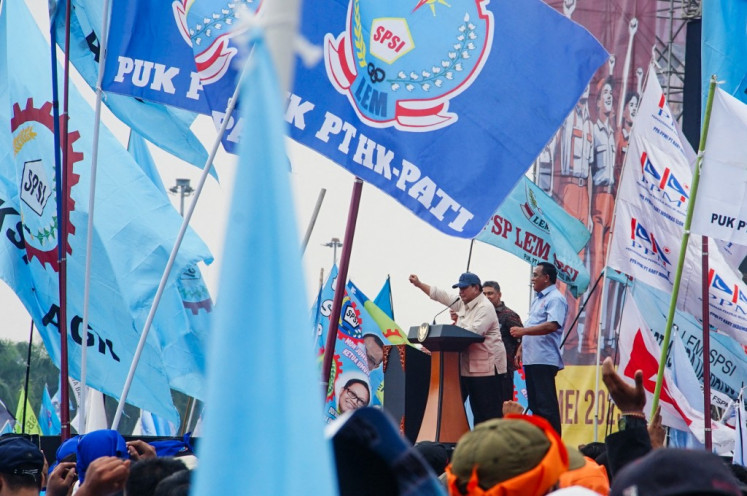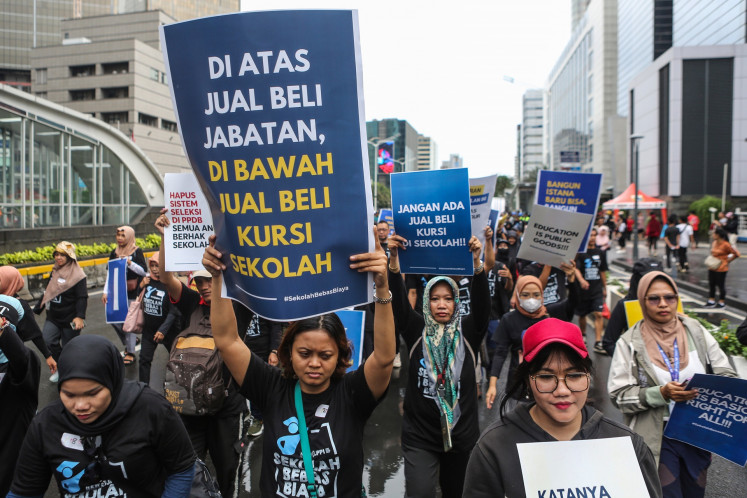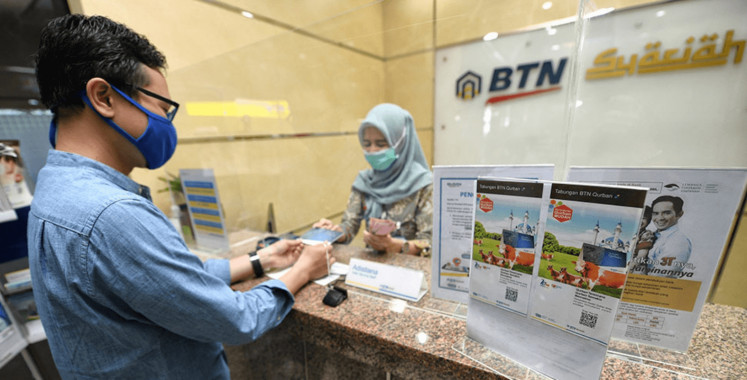'Mining at the Crossroads' ignores human resource paradigm
The recent Tempo weekly news magazineâs English edition focusing on âMining at the Crossroadsâ in Indonesia was extremely timely and very informative
Change text size
Gift Premium Articles
to Anyone

T
he recent Tempo weekly news magazine's English edition focusing on 'Mining at the Crossroads' in Indonesia was extremely timely and very informative.
On the face it seems that digging ores and coal out of the ground, processing them and shipping them abroad would be a straightforward process, but mining and its many peripheral issues in Indonesia are extremely complicated, pressing even the most weathered investors.
Nonetheless, mining still plays, and will for the foreseeable future, a critical role in Indonesia's economy and contributes a large slice of the pie in terms of revenue. When commodity prices are high, it is very profitable.
Right now the world is in an economic slowdown regarding commodities. This has had a serious negative effect on the Indonesian mining industry, but may help trigger serious reform.
There were some very interesting points in Tempo that need further pointing out about current practices and the policies that are in place.
Some of these policies were put in place in the Soeharto era, a time of significant centralized decision making.
Now, decentralization has put the mining approval processes in the hands of local leaders.
Yet the age-old question in Indonesia about mining regulatory authority between national and local governments seems always to lurk around the corner.
Many of the current issues with mining in Indonesia centers around the 2009 Mining Law that attempts to upgrade Indonesia's vast resources from raw ore and extract to mid-value-added products like refined ingots and finished nickel.
Building smelters under this law is a huge issue. Tin smelters, for example, are largely useless, as tin is a low-value product in itself. But smelters are a big part of the value chain for nickel, while smelters for gold bauxite and copper fall somewhere in the middle.
A major issue that has emerged concerns the integration of these smelters into existing environmental and power-plant capacities. Smelters produce significant waste, which if not processed, becomes an environmental hazard. Smelters also require significant and reliable electric power generation, which many mining sites lack.
Power plants will need to be built, and in this case, who pays for it? It will either be the miners, or the government, via more energy-producer subsidies. More side-issues emerge: will a port have to be built to get fuel to the power plant, which in this case, will probably be cheap coal?
On the face this seems like a simple solution, but coal is a contributor to the fossil fuel footprint of increased carbon emissions. Above all, building permits and operational red tape hamper smelter construction and its accessories. If licenses and regulations are not centrally or locally coordinated, problems crop up.
Divestment policy is another issue. Since the granting of contracts in the Soeharto era for large mining concerns like Newmont's Nusa Tenggara in West Sumbawa or Freeport Indonesia in Papua, the government has gradually sought mining divestment in 'Indonesian' parties.
What exactly is that? Is it national government and/or provincial government? Or is it state-owned companies or private companies? Not all private companies in Indonesia are equal ' some have better connections than others.
Who will be the final arbiter to divide up this pie equitably? Even if the divestment entity is acceptable to all concerned parties, there are further details to consider: when will it occur, who keeps what and what is the final share price? The buyer wants a the lowest share price possible, the seller the highest.
Meanwhile, corporate social responsibility (CSR) is not well understood by most actors. CSR is about the environment, health and education in local mining communities and areas.
However, directing a firehose of money at these initiatives without requiring local leaders to be transparent and fair in their disbursement of these funds has led to weak results and a proliferation of corruption.
It is also one reason international aid programs from Germany, the US and Australia, not to mention several NGO's, hypocritically exist and thrive in areas where mining and oil companies are making vast profits. The companies have paid their social obligations, but once in the hands of local leaders, the accountability factor goes to nil.
If the goal of all this legislation from divestment to environment (Forestry Law No. 41/ 1999) to building smelters (2009 Mining Law) is to lift the 'resource curse', then it falls short.
While the goal of strengthening the local economy by producing value-added products is laudable, economies of scale are necessary to implement any economic development initiatives. This requires deep skills and an understanding of the many moving parts in the process.
Lifting the resource curse at its core is found in empowered human resources. Unfortunately, (and this is the most important point missed in all the mining assessments) there is no mention of active human capital development that incorporating skills sets ' technical, vocational, and managerial ' into the mining contracts from the outset.
Rather, they assume a passive stance, believing that upgrading will just 'happen' if investors receive profits from mining and can contribute meaningfully to CSR initiatives, mostly in health and education.
Unfortunately, it doesn't work that way. Investors get paybacks and communities get CSR, but giving a man fish today as opposed to teaching that man to fish sacrifices Indonesia's one big strategic advantage ' its people.
Education reform must be spelled out in the contracts to increase empowerment in these mining communities. Building a smelter, forcing a share sale or creating a power plant will not lead to that in itself.
People in these communities and all over Indonesia must have a relevant say in their resources. The old business model will not get it there.
The key to developing CSR and local skills and local content is not found in hardware and rules alone, but in software.
A new paradigm of mining and resource-extraction is in order. This can then change Indonesia's mining and downstream capacity for the better. It all starts with a recognition of human resources.
_____________________
The writer is an associate professor and public policy adviser.

